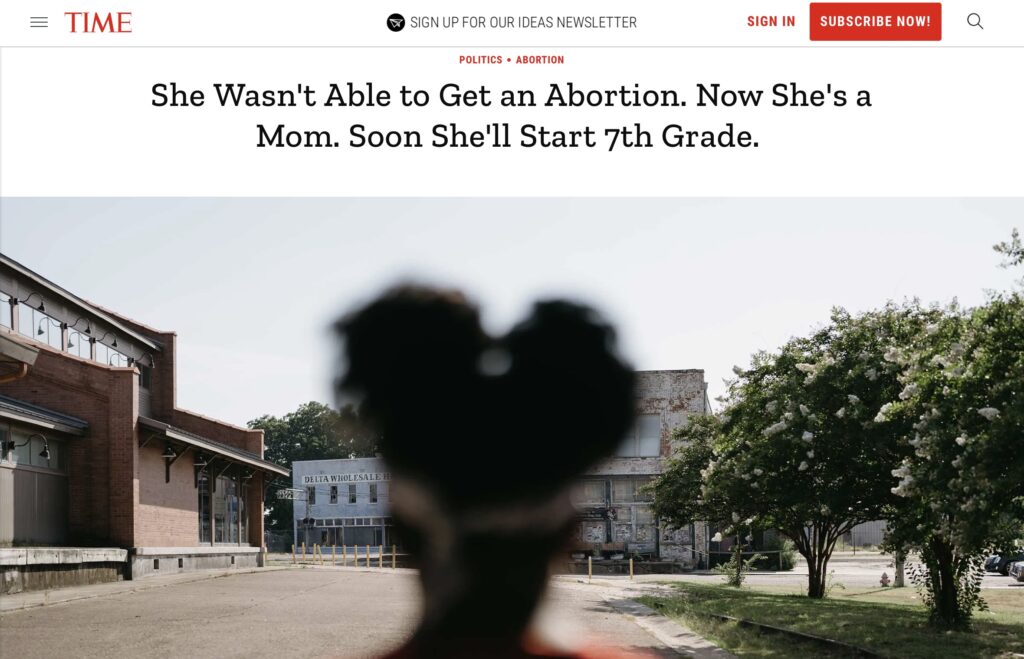(Austin, TX) — In August of this year, Charlotte Alter wrote a piece for “Time Magazine” titled, ‘She Wasn’t Able to Get An Abortion. Now She’a a Mom. Soon She’ll Start 7th Grade.” The story sheds light on the topic of reproductive rights, and Alter takes you into the life of a 13-year-old girl in Mississippi, whose life was forever changed due to being raped and subsequently becoming pregnant.
But unlike some more policy-driven reporting on the subject, Alter’s piece tugs at the heartstrings, and that seems to be the point. Her piece falls into the category of advocacy journalism, because she presents us the topic of reproductive rights with a specific viewpoint, through the narrative of a young girl, whose life is forever altered. It’s a piece I found effective and important as we enter the second year that American women and girls are living without the Constitutional right to an abortion.
On June 24, 2022, the U.S. Supreme Court overturned Roe v Wade’s federal protection for abortion, and soon thereafter 34 states have outlawed abortions, many leaving no exceptions for cases of rape or incest, or the health of the mother or fetus.
The story begins with Ashley the young girl at home with a baby boy just hours after having been discharged from the hospital. But the atmosphere Alter describes is not of joy; it’s glum, and depressing. Then you read more of Ashley’s journey and how it had a domino effect on her family as well.
Alter delved into such detail and spent a considerable amount of time with the girl and her family indicating a deep commitment to her story. You can feel the passion she has, not only for writing but also for this topic. She also provided facts about abortion laws in the state of Mississippi. This wasn’t a one-sided piece, but ensured that the reader understood the significance of reproductive rights, especially in cases of rape.
You even get to know Regina, Ashley’s mother, through this piece and how she navigated through trying to understand what happened to her daughter. Regina knew something was wrong with Ashley, but wasn’t sure what it was. It wasn’t until she took Ashley to the hospital, due to her vomiting uncontrollably, that she found out her daughter was pregnant. When she found out the truth, she broke down.
When Alter spoke to Ashley’s doctors (with her permission) that is when you understand that Regina wanted Ashley’s pregnancy terminated but was told that was not possible because of the abortion bans in Mississippi. She would have to travel to Chicago for the pregnancy to be terminated. And like so many others, Regina could not make that trip due to economic reasons.
Alter could have left that bit of information out, but keeping it in her story is what culminates the bigger issue here which is reproductive rights.
So now Ashely’s story turns into something bigger because as you’re reading it, it must evoke some emotions, or at least get you thinking. In this case, it’s not just a matter of law; it’s a life forever changed. And along with Ashley, there are so many other names lost in the shuffle of lawmakers making decisions about women’s bodies.


